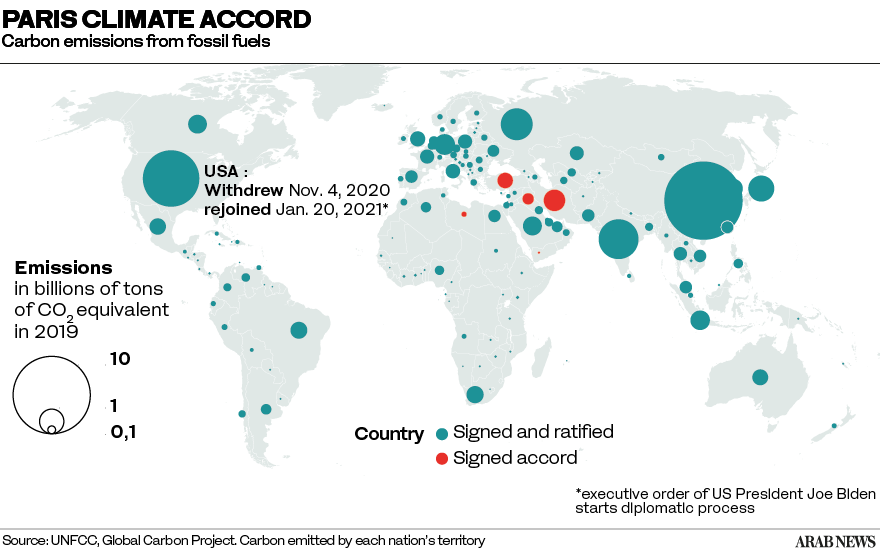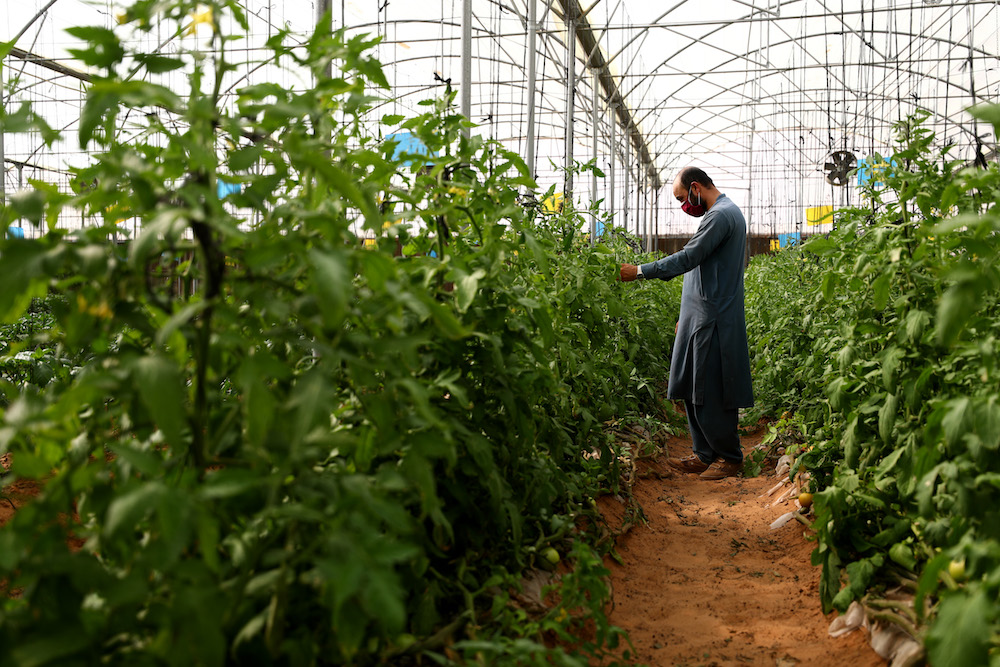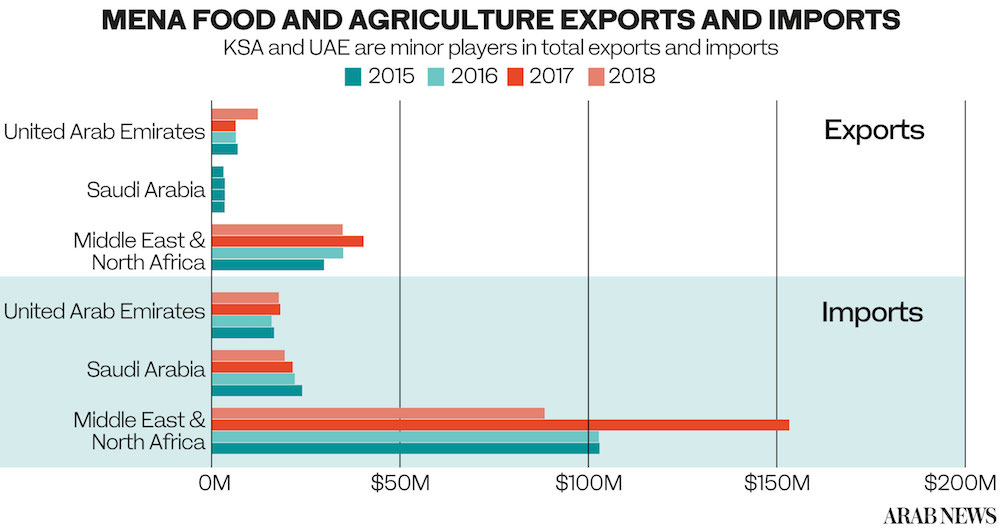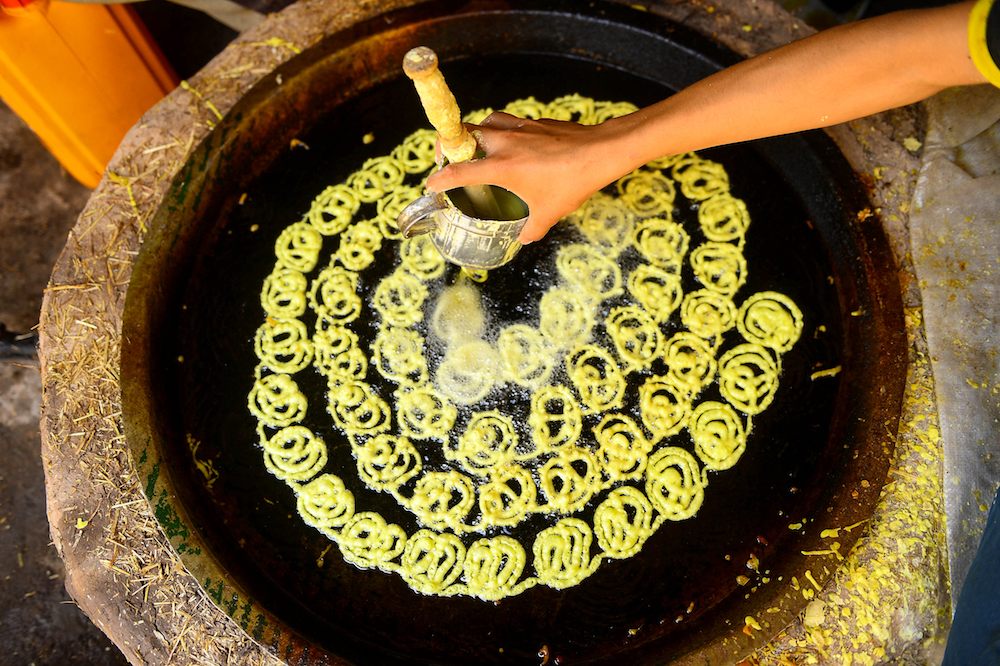DUBAI: Millions of people in the Middle East and North Africa were suffering from severe effects of hunger and malnutrition long before the COVID-19 pandemic disrupted supply chains and put a squeeze on public spending. Now the war in Ukraine threatens to exacerbate the problem and global food prices are expected to keep rising.
This is happening against the backdrop of an ever-worsening climate emergency, as rising temperatures around the world compound problems such as water shortages, soil degradation, forest fires and rural displacement. This is placing additional strain on agriculture and the food security of some of the world’s most vulnerable people.
In an effort to get ahead of this escalating food crisis, and in recognition of the fact it is intrinsically connected to the climate emergency, an ambitious new initiative led by the UAE and the US aims to double investment in climate-smart agriculture over a period of five years — from the $4 billion announced by US President Joe Biden at the COP26 climate summit in Glasgow, Scotland, in November to $8 billion by the time COP27 takes place in Sharm El-Sheikh, Egypt, this year.
The initiative — the Agriculture Innovation Mission for Climate, or AIM for Climate — brings together more than 140 global partners from the public, private and non-profit sectors with a view to doubling investment in science-based and data-driven decision and policy making relating to two of the most pressing issues facing the MENA region: food security and climate change.

Speaking in late February after the inaugural ministerial meeting of AIM for Climate at Expo 2020 Dubai, Mariam Almheiri, the UAE’s minister for climate change and environment, said that although food systems are responsible for as much as a third of greenhouse gas emissions, they can also help to solve the problem.
“Food systems can be a challenge but also a solution to reducing greenhouse gas emissions,” she said. “Over two billion people are directly connected to the food-system sector, so we need to make food systems more efficient, decarbonize and ensure the livelihoods of the people dependent on the sector.”
Noting the dependence of the UAE on imported food — about 90 percent of the country’s food needs are met by other countries — Almheiri said partnerships such as AIM for Climate are critical to help arid countries such as those in the MENA region to learn from the experiences of others. Furthermore, the adaptation of food systems will play a central role in the global drive toward sustainable development.
“The transformation to sustainable food systems is an urgent task and we don’t have a lot of time,” Almheiri said. “The UAE seeks to become a leading exporter of sustainable agricultural solutions for hot and arid climates.”

Emirates Bio Farm is making sure people still have access to healthy produce during the coronavirus crisis and supplies the UAE’s largest supermarket chains and retailers daily with fresh organic produce. (AFP/File Photo)
Part of this transformation will involve the adoption of emerging technologies, which are already enabling the UAE to produce food that would be impossible under normal climatic conditions, such as salmon, quinoa and berries, all of which can now be sustainably farmed in the UAE.
“We are keen to share our experience with our partners and work with other countries to address critical challenges of our food systems,” Almheiri told guests at the Expo 2020 Dubai meeting. “We see ourselves as an open lab to innovate, discover and put forward solutions.”
Although it is exciting to hear about such commitments and learn about the applications of new technologies, Almheiri said, food security and climate pressures cannot be addressed without concrete global targets.
“To move it to the next level, we’ve put tangible outcomes we want to achieve by COP27, which will move to the UAE as we are hosting COP28. We have to look at the deliverables,” she added.
Thomas J. Vilsack, the US agriculture secretary, also spoke at the Expo 2020 Dubai event and lauded the efforts of the UAE to rally nations to a common cause.

“There is an innovative spirit in Dubai that all of us around the world should emulate: A belief in a better and brighter future,” he said.
Securing funding is now critical for the project to succeed, Vilsack said, as he called on governments, the private sector and non-profit organizations to pool their resources to support small farms in developing countries, commit to reducing methane emissions, and promote emerging industries such as nano-technology, artificial intelligence, robotics, sensors and drones.
THENUMBER
* 69 million - People in the Near East and North Africa without access to adequate food in 2020, according to FAO.
“AIM for Climate government partners today demonstrated their strong commitment to work together to close the investment gap in climate-smart agriculture and food systems innovation, (which is) needed to address the twin challenges of global hunger and the climate crisis,” said Vilsack.
“We are proud of the wide range of AIM for Climate partners working to deliver impactful solutions for all people. AIM for Climate seeks to expand its network even further with new participants from across the globe.”

Food-security concerns have heightened since Russia launched its invasion of Ukraine on Feb. 24, several MENA nations rely on them for food staples. (AFP)
Food-security concerns have heightened since Russia launched its invasion of Ukraine on Feb. 24. Both of these countries are major suppliers of wheat and vegetable oils to global markets and several MENA nations rely on them for food staples, including bread.
Financial sanctions imposed on Russia and disruption to shipping have caused prices to rise and are stoking fears of looming shortages. In Yemen and Afghanistan, where hunger is already a fact of life for many, the prospect is terrifying.
The 2021 Near East and North Africa Regional Overview of Food Security and Nutrition report, published by the UN’s Food and Agriculture Organization in December, revealed that 69 million people in the region did not have access to adequate supplies of food in 2020, and 50.2 million people — 11 percent of the population — were undernourished.
“This is an astonishing figure for our region,” Ahmad Mukhtar, a senior economist at the FAO’s Regional Office for Near East and North Africa in Cairo, told Arab News.
“There are factors that we know, such as climate change, inequalities and protracted conflicts in our region, but one aspect that should be highlighted is that our region is particularly heavily dependent on imported food.”

About two-thirds of food in the MENA region is imported, which leaves it extremely vulnerable to supply-chain shocks, as the COVID-19 pandemic made painfully clear. Progress toward the UN’s Sustainable Development Goal of achieving “zero hunger” by 2030 was badly affected by the health crisis, with many of the achievements of the past decade pushed into reverse, according to a FAO report published in November.
At least 132 million people in the MENA region were plunged into chronic hunger during the pandemic, with up to 14 percent of food production lost along the supply chain before it even reached consumers.
Areas in which progress has stalled, or gone into reverse, include agricultural systems and small-scale food production, which have borne the brunt of the economic toll of the COVID-19 crisis.
The region is also poorly equipped to manage strategic food reserves. Mukhtar said structured plans are needed for the management and distribution of food and to prevent waste. Much of this will depend on the deployment of new technologies and innovations.
“This is an area that needs focus,” Mukhtar added. “There are certain structural issues, such as inequalities, conflicts and climate change, which are all external factors that are beyond the agri-food policy domain, so we have to look at what is in our hands.”

















